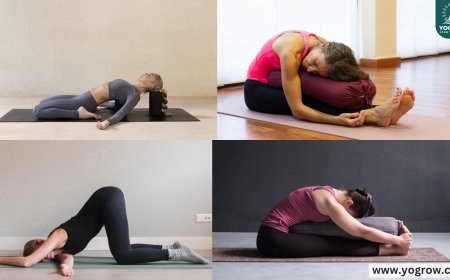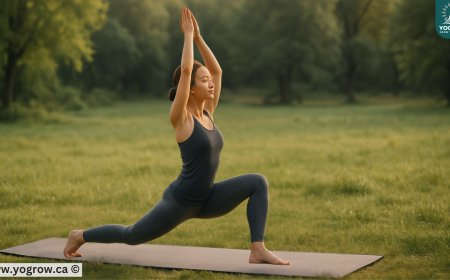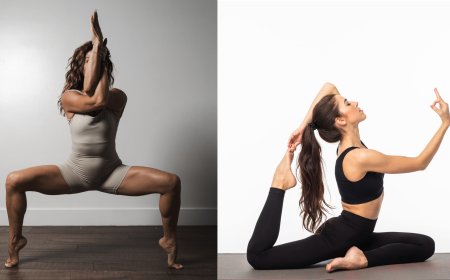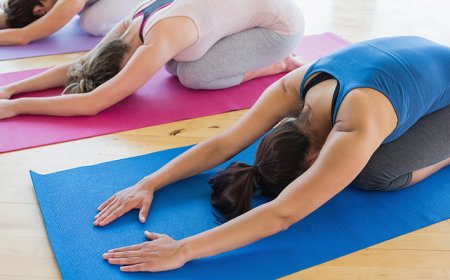Recover Smarter: The Essential Role of Yoga for Athletes
Discover why yoga is crucial for athletes. Learn how it improves recovery, boosts performance, and enhances overall health. Start your yoga journey today.
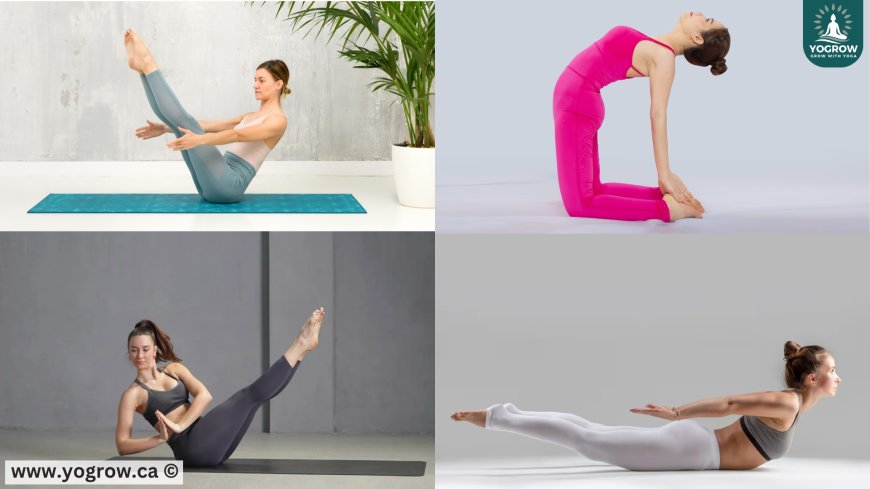
In the fast-paced world of athletics, recovery is just as important as performance. While many athletes focus on strength training and conditioning, yoga offers a unique approach that aids in faster recovery and enhanced performance. If you're an athlete looking to recover smarter, yoga can be your secret weapon. From increasing flexibility to reducing muscle soreness, yoga provides benefits that every athlete should consider integrating into their routine.
Benefits of Yoga for Athletes
1. Improved Flexibility and Range of Motion
One of the most obvious benefits of yoga is its ability to improve flexibility. Stretching the muscles during yoga helps increase their length and flexibility, which is vital for athletes in any sport. Whether you’re running, cycling, or lifting weights, improved flexibility enhances performance and reduces the risk of injury. With regular yoga practice, athletes notice improved mobility in their joints, enabling them to move more freely and efficiently.
For a deeper dive into how yoga helps athletes boost performance and speed up recovery, check out this article on Yoga for Athletes.
2. Enhanced Recovery Time
Yoga is well-known for its ability to reduce muscle tension, which helps speed up recovery. After a rigorous workout or intense competition, yoga's deep stretching and breathwork help release built-up lactic acid in muscles, reducing soreness and stiffness. This accelerates the body’s natural recovery process, allowing athletes to train harder and more frequently without overtraining or injury.
Additionally, yoga has been shown to improve blood circulation, which is key for delivering nutrients to damaged muscles and accelerating the healing process. According to Human Kinetics, athletes who practice yoga regularly report shorter recovery times and feel less fatigued post-workout.
3. Improved Mental Focus and Stress Relief
Athletes face intense mental and physical demands, which can sometimes lead to stress, anxiety, and burnout. Yoga is a powerful tool for calming the mind and enhancing mental clarity. Through focused breathwork and mindfulness, yoga helps athletes manage stress, improve concentration, and enhance their overall mental well-being. A clear mind is essential for peak performance, and yoga gives athletes the tools to stay focused, even under pressure.
4. Better Posture and Alignment
Good posture and alignment are crucial for athletes to avoid unnecessary strain on muscles and joints. Yoga helps improve posture by teaching athletes how to align their body properly during movement. By strengthening core muscles and promoting proper body mechanics, yoga can reduce the risk of injuries caused by poor posture. Over time, athletes will notice better alignment during their sport, which contributes to better performance and less fatigue.
5. Injury Prevention
Yoga increases the strength and flexibility of muscles and connective tissues, helping athletes avoid injuries like sprains, strains, and joint issues. By practicing yoga, athletes can address imbalances in the body that may cause injury over time. Regular yoga practice also helps improve the balance and proprioception (awareness of body position), which is particularly beneficial in sports requiring quick reactions or agility.
Practical Steps for Athletes to Integrate Yoga into Their Routine
Integrating yoga into an athlete’s training routine doesn’t have to be complicated. Here’s a simple, step-by-step guide to help you get started:
1. Start with a Beginner Class or Online Session
If you’re new to yoga, start with a beginner class or an online session designed for athletes. This will help you learn the basics of yoga, including breath control and proper form. There are numerous resources available online, including guided yoga sessions specifically tailored to athletic recovery.
2. Focus on Recovery Poses
As an athlete, you don’t need to practice every yoga pose. Focus on those that promote recovery and relaxation. Some key poses include Downward Dog, Child’s Pose, and Pigeon Pose. These stretches help release tension in the legs, hips, and lower back – areas that athletes often hold tightness.
3. Incorporate Yoga Post-Workout
Yoga can be a great way to cool down after a workout or competition. A short 10-20 minute yoga session post-workout can aid in muscle recovery, improve flexibility, and calm the mind after intense physical activity.
4. Use Breathing Techniques to Reduce Stress
Breathwork is a core component of yoga that can be particularly beneficial for managing stress and improving focus. Try incorporating breathing exercises like pranayama, which involves controlled inhalation and exhalation to promote relaxation and mental clarity.
5. Consistency is Key
Like any other training method, consistency is key. Try to incorporate yoga into your weekly routine 2-3 times per week. Over time, you’ll begin to notice the physical and mental benefits it brings to your athletic performance and overall well-being.
For additional advice on how yoga can help boost performance and speed up recovery, refer to Yoga for Athletes.
Conclusion & Call-to-Action
Incorporating yoga into your athletic training regimen is a smart way to enhance performance, accelerate recovery, and prevent injuries. Whether you’re recovering from an intense workout or looking to improve your flexibility, yoga can help you achieve your goals faster and more efficiently. Ready to give yoga a try? Explore more about how yoga can improve your athletic recovery with our Yoga for Athletes blog.
Want to experience the benefits of yoga firsthand? Book a yoga session today and start recovering smarter!
What's Your Reaction?
 Like
0
Like
0
 Dislike
0
Dislike
0
 Love
0
Love
0
 Funny
0
Funny
0
 Angry
0
Angry
0
 Sad
0
Sad
0
 Wow
0
Wow
0
